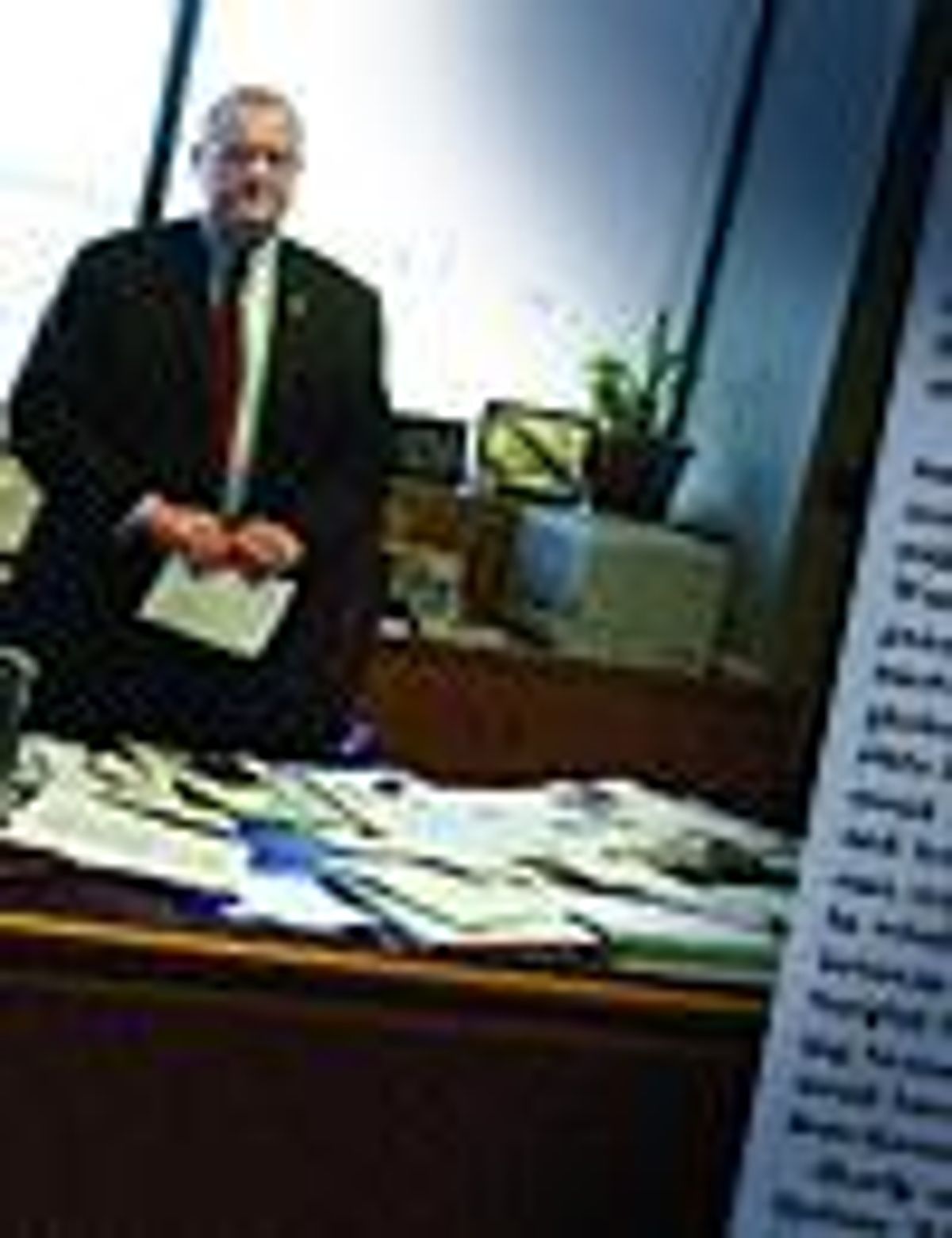I felt sorry for
them--for the older guys, the men in their 40s and
50s, that ever-present clump of middle-aged men who
hung out in bars they were way too old for and lusted
after guys who were way too young for them. My friends
didn't feel sorry for them. They made fun of the
"old trolls," as they insisted on
calling them, although they would condescend to let them
buy us drinks.
It was 1981, and
I was three months shy of my 18th birthday. Unlike most
of the other boys in the vapid crowd of just-out teenagers I
was running with, I knew a little gay history and I
could add and subtract.
When those older
men in the bars were 18, it was 1961 or 1951--and it
might as well have been 1661 for all the difference it made.
When they were our age it just wasn't possible
to be an openly gay teenager. We were talking
pre-Stonewall! The dark ages! There weren't gay youth
groups or gay bookstores or gay neighborhoods. No
PFLAG, no NGLTF, no FFA. "Give 'em a
break," I used to tell my friends. "They
missed out."
When I got to
know some of these older guys I was
shocked--shocked!--to discover that not
all of them lusted after me and my young friends. Some
of them lusted after other middle-aged guys; others had
boyfriends at home.
But many, as I
suspected, had "missed out." Many had had
wives, children, and established careers long before
the Stonewall riots.
Consequently,
their coming-out processes had been--what's the
word?--messy. And while a few of the men I met
came out willingly, most told me stories about getting
caught or discovered. The term hadn't been invented
yet, but they had been outed. Inevitably their stories
ended with their wives divorced, their children
estranged, their careers over.
They had known
they were gay when they married, but when they were young
they didn't think they had any other
options--they had to pass; they had to marry;
they had to have families. Their formative years were truly
tragic, and hearing their stories made me feel even sorrier
for them.
Jim West, the
disgraced former mayor of Spokane, Wash., had a messy
coming-out process in 2005--to put it mildly. A
Republican elected official in Washington State for
more than 20 years, West was once Washington's
most prominent and powerful homophobe. During his two
decades in the state legislature West backed a bill that
would have made it illegal for gay men and lesbians to
work in schools, day care centers, and some state
agencies; he voted to define marriage as a union between a
man and a woman; he attempted to outlaw sex between
consenting teenagers; he killed a bill that would have
protected gays and lesbians from discrimination.
Shortly after he
was elected mayor of Spokane, West threatened to veto
domestic-partner benefits for city employees.
When
Spokane's daily newspaper, The
Spokesman-Review, heard that West was trawling the
Internet for gay teenagers, the paper began trawling
the Internet for West. And it didn't take long to
find him in a Gay.com chat room, where he offered a
city internship to someone he thought was an
18-year-old boy and a possible sex partner. (Now we know
why West wanted to ban sex between consenting teenagers: He
wanted the teenage boys for himself.) In May the paper
published a long story on West's secret life,
and on December 6 voters turned West out of office in
a special recall election.
As chance would
have it, I was in Spokane the day after Jim West was
forced from office. My boyfriend grew up in the town, and
all I can say is that it's a nice place to be
from--far, far from. Spokane is religious,
conservative, and overwhelmingly white, and it's not
an easy place for gays or African-Americans or
Democrats or Jews or atheists to live.
I know it
wasn't an easy place for my boyfriend to grow up gay;
he was physically assaulted repeatedly in high school.
(When his mother complained to the principal she was
told that the abuse would continue so long as he
insisted on "acting like that.")
It can't
have been a good place for West to grow up gay either. But
none of the sympathy I felt for middle-aged gay men I
met in the early 1980s extended to West--or to
any closeted middle-aged men today who fear getting
caught.
West is 54 years
old. That means he was 18 in 1969, the year of the
Stonewall riots. He was 26 in 1977, the year that Harvey
Milk was elected to the board of supervisors in San
Francisco. He was 29 years old when I was 17 and
hanging out in bars in Chicago.
He was 34 years
old when my boyfriend was being beaten in his Spokane
high school, in a district that West represented in the
Washington State legislature.
Jim West knew
better. He knew he didn't have to live a lie. He knew
he could have lived as an openly gay or bisexual
man--bisexual is all West has admitted to in
most of his interviews, although no pictures of young
women were found on his work computer--but he chose
not to. Unlike the older gay men I met in 1981, West
and other closeted middle-aged men today didn't
come of age at a time when no one could conceive of openly
gay and lesbian people and communities. (Or politicians:
Washington State has four openly gay members of its
legislature.) Jim West chose the closet and shame and
lies and hypocrisy.
So while I had
sympathy for gay men who came out late in life in the
1970s and 1980s, I find I have no sympathy for Jim West or
other men like him today. Their stories aren't
tragic, they're pathetic. They didn't
miss out. They opted out. Fuck 'em.


















































































